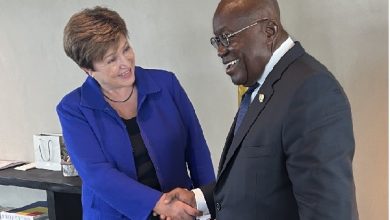Supreme Court overturns Speaker’s decision to vacate four parliamentary seats

The Supreme Court has overturned the Speaker of Parliament’s decision to declare four parliamentary seats vacant.
In a 5-2 ruling, the court sided with the plaintiff, Hon. Alexander Afenyo-Markin, concluding that the Speaker had exceeded his authority in making the declaration.
The majority opinion, delivered by Justices Gertrude Torkornoo, Mariama Owusu, Samuel Asiedu, Ernest Gaewu, and Yaw Asare Darko, favored Afenyo-Markin. Justices Issifu Omoro Tanko Amadu and Avril Lovelace Johnson dissented, raising concerns about the Court’s jurisdiction in this parliamentary matter.
Joe Ghartey represented the plaintiff, while Attorney General Godfred Yeboah Dame was also present. The Speaker of Parliament, however, was not legally represented during the proceedings. The full judgment, including the Court’s reasoning, is expected to be released by the end of the day.
Following the verdict, Attorney General Godfred Yeboah Dame addressed the media, urging all parties to uphold the court’s decision, emphasizing its binding nature as the Supreme Court is the highest arbiter of constitutional issues in Ghana. Dame highlighted the enduring strength of Ghana’s Constitution but suggested reforms to enhance its flexibility.
Drawing comparisons to the U.S. Constitution, Dame noted its resilience over time and suggested that specific sections of Ghana’s Constitution—particularly Article 78(1), which mandates that the president appoint the majority of ministers from Parliament—could benefit from amendments to improve governmental flexibility. He also proposed that appointments to major state institutions, such as the Electoral Commission, should undergo parliamentary approval to ensure greater accountability.
Dame, however, clarified that he does not advocate for a complete overhaul of the Constitution, underscoring that it contains mechanisms for checks and balances. He cited Article 2, Clauses 3, 4, and 5, which provide consequences for any failure to adhere to Supreme Court directives.
The Attorney General called on the Speaker to reconvene Parliament in compliance with the Supreme Court’s judgment, arguing that non-compliance would signify double standards. He reminded the public of the Speaker’s previous statements about the importance of upholding judicial decisions and said these now stand in contrast to his recent abstention from the proceedings.
Dame stressed that Ghana’s Supreme Court, like its counterparts in other democracies such as the United States and the United Kingdom, possesses final authority on constitutional interpretation. He asserted that this principle of respecting judicial decisions is essential for democratic integrity and called for an end to selective compliance with court rulings.
The judgment has sparked national conversations on the powers of parliamentary authorities and the role of the judiciary in safeguarding constitutional boundaries.





